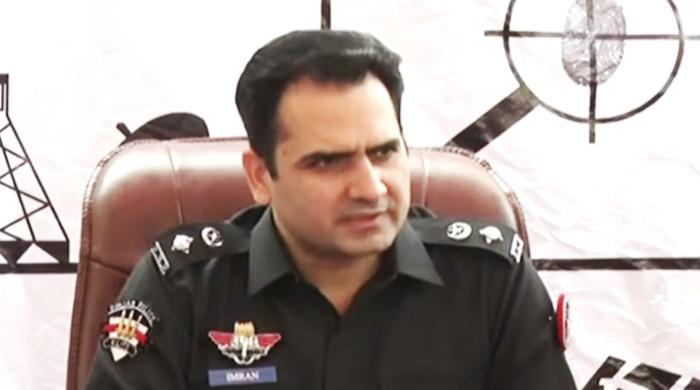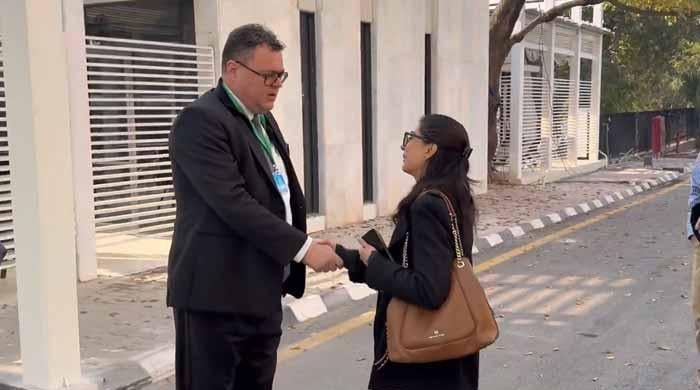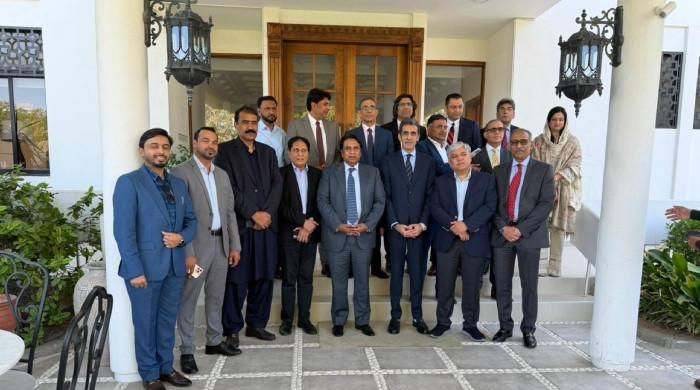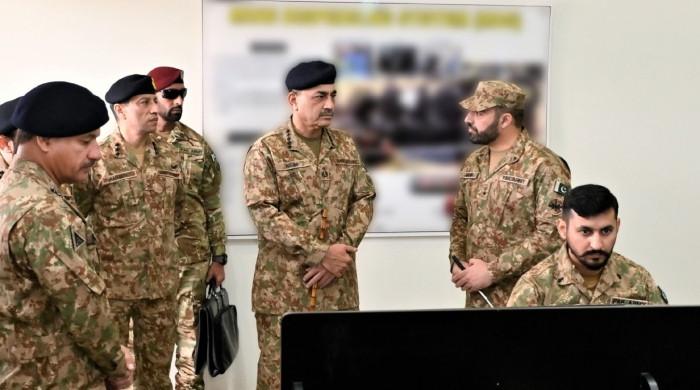Musharraf treason case: All evidence points to crime of high treason, court says
All those who facilitated Musharraf's escape also be brought to trial and prosecuted for their crimes, judgement says
December 19, 2019
A special court which had pronounced General (retd) Pervez Musharraf guilty of high treason earlier this week issued its detailed verdict on the matter on Thursday.
Dismissing criticism of a trial conducted 'in haste', the special court in its detailed verdict stated that Musharraf had “been afforded more than his due share of fair trial” and “given every opportunity to defend himself”.
The court further said that “the facts of the case are well documented” and “clearly demonstrate guilt on part of the accused”.
"The trial of high treason is the requirement of the Constitution against those individuals who undermine or attempt to undermine the Constitution by any means," the judgement stated.
"This Court after the presentation of undeniable, irrefutable and unimpeachable evidence by the prosecution against the accused reaches to the conclusion that indeed accused [Musharraf] is guilty and deserves exemplary punishment.
The court had sentenced Musharraf to death on Tuesday for imposing a state of emergency on November 3, 2007, adding that it had found him guilty of high treason in accordance with Article 6 of the Constitution of Pakistan.
The case was heard by a bench comprising Justice Waqar Ahmad Seth of the Peshawar High Court, Justice Shahid Karim of the Lahore High Court and Justice Nazar Akbar of the Sindh High Court.
“We, with the majority of 2 as to 1, allow the complaint and hold the accused guilty of high treason as defined at Article 6 of the Constitution and pass punishment under section 2 High Treason (Punishment) Act, 1973. Thus, the convict be hanged by his neck till he is dead,” the judgement issued today read. Justice Akbar dissented from the decision.
"It would be in the interest of justice that all those involved (if any) in facilitation of the escape of the fugitive accused may also brought in the net of due course of law and their criminal acts (if any) may be investigated and tried in accordance with law," the judgement added.
'Uniformed accomplices be tried as well'
“It is unbelievable and unimaginable that such an extreme act is committed alone by a single man in uniform,” Justice Seth, presiding judge of the bench, wrote in his verdict.
“The then Corps Commanders Committee, in addition to all uniformed officers who were guarding him [Musharraf] each and every time, with boots on, are equally and full involved in the act and deeds of the accused person.”
"Each and every member of the Armed Forces, as per their oath under the 3rd schedule to the Constitution in pursuance to Article 244 is bound to bear true faith and allegiance to Pakistan and uphold the constitution which embodies the will of the people," the judgement stated. "They have also sworn not to engage themselves in any political activities whatsoever."
The judgement had stern words for everyone who enabled Musharraf. "Every member of the Armed Forces has also solemnly affirmed that he will honestly and faithfully serve Pakistan, as required by and under the law and in this respect, the oath has been violated by each and every member of the higher command in the armed forces by failing to preserve, protect and defend the Constitution, either siding, aiding, supporting or facilitating the accused or remaining silent to this act while being in uniform as the accused's plane had not yet landed that his cronies unconstitutionally on the ground, for the first time when the constitution was usurped in the year 1999."
The judge noted that Musharraf’s aiders and abettors had not been made part of the complaint when it was filed by the federal government. However, the verdict said, that does not absolve the government from “investigating these officers and filing a complaint against them”.
Dissenting note
Justice Nazar of the Sindh High Court, who dissented from the verdict, pointed out that the word ‘high treason’ is not defined in the Constitution and the court relied on the definition given in dictionaries.
“In the offence under Article 6 of the Constitution, the charging word is ‘high treason’, therefore, without properly appreciating what does it mean, this Court cannot pass a just and fair verdict,” the note reads.
“Admittedly the word "high treason" is not defined in the Constitution or any other relevant law for the benefit of this Court. But for this reason, both the learned counsel for the prosecution and my learned brothers have referred to the definition of "high treason" by relying on the meaning of ‘High Treason’ given in the Oxford Dictionary (tenth Edition).”
'Fears have proven true'
Later in the evening, Maj Gen Asif Ghafoor, director general of Inter-Services Public Relations (DG ISPR), held a press conference to present the army's view of the verdict.
"The reservations we expressed on December 17 have proven true," he remarked, referencing an earlier statement that had asserted that the judgement was rushed and Musharraf had not been given a fair trial.
"We have sacrificed much over the last 20 years to attain stability in this country, and we will not allow that stability to be reversed," he said.
The DG ISPR also made some references to 'internal and external enemies', asserting that Pakistan Army would foil the designs of all those who wished to derail Pakistan's efforts.
He said the army chief and the prime minister had a detailed conversation regarding the verdict and the government would be presenting the state's response formally.
High treason case
The Pakistan Muslim League-Nawaz (PML-N) government had filed the treason case against Musharraf in November 2007.
Head of the prosecution, Mohammad Akram Sheikh had tendered his resignation in 2018. In his resignation letter sent to the interior secretary, Sheikh expressed his inability to proceed with the case after the imminent change of government at the centre.
Sheikh was appointed as the head of the prosecution in the case in November 2013, by the then-PML-N government.
The former army chief was indicted in the case in March 2014 after he appeared before the court. He had rejected all the charges.
On March 18, 2016, the former president left Pakistan for Dubai for medical treatment after his name was removed from the exit control list on the orders of the Supreme Court.
A few months later, the special court had declared him a proclaimed offender and ordered the confiscation of his property owing to his continuous inability to appear.
Later, his passport and identity card were also cancelled on the orders of the apex court.
Related:
President can amend or dismiss Musharraf’s case: Barrister Zafarullah
Musharraf treason verdict is biased, says former AG Irfan Qadir









